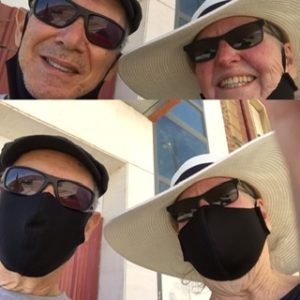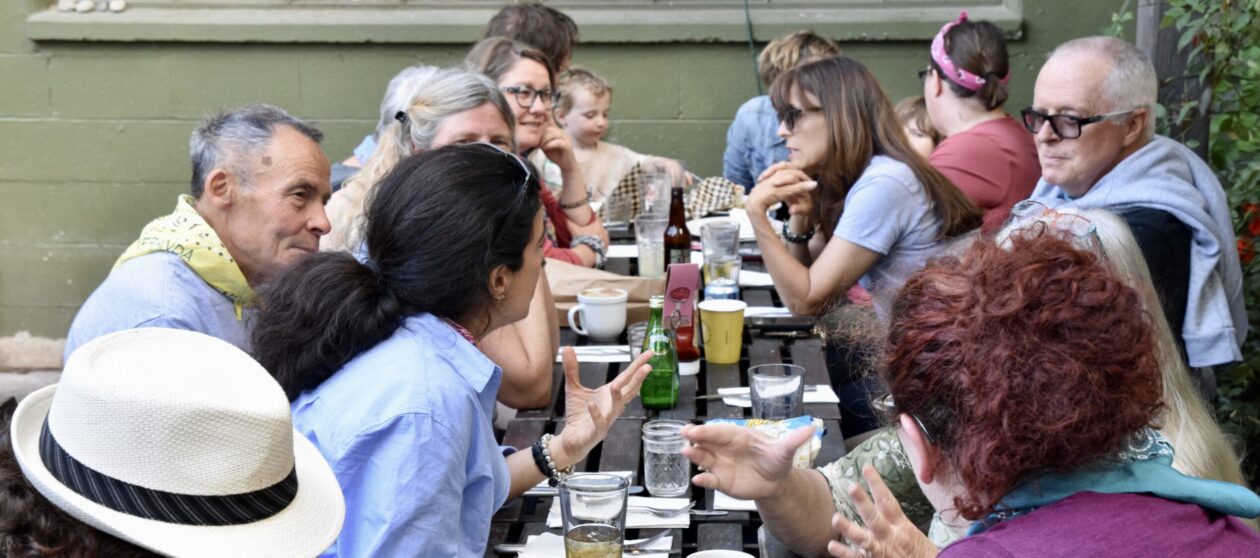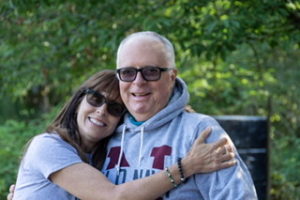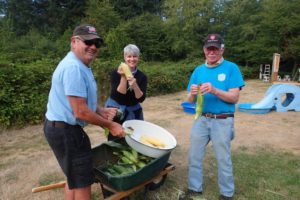
(Photo R Angert)
Intimacy & Vulnerability or Waking Up With You Today.
What is it about our Camino that brings the word intimacy into focus? How does the Creator reveal intimacy? Is there a reward for vulnerability? What can we take from the intimacy we experience along that path in Spain and spread it around?
Lots of questions, let’s look for some answers.
If you had the pleasure of walking a Camino you likely remember the way Spanish people greet one another. The standard two kiss greetings shared with a woman you know, the hugs that men share readily and sharing personal space. ‘Abrazo fuerte’ (strong hugs) is a very standard closing line to letters, like ‘Sincerely’ is in the US. I just looked at an email from our Spanish teacher and she ended it with ‘Un besazo y un abrazo enorme.’ After living here for a year we are comfortable with these hugs, kisses and words but now it is curtailed as part of healthy practices. It must be hard for Spanish people to meet their friends and skip those greetings.
Intimacy is a sign of caring and requires vulnerability. We are taught to hide it except for a few family members and spouses. But looking at God’s word I see how intimacy and vulnerability are expected. The church is called the Bride of Christ. God is Our Father. Christ is The Son of Man. Other believers are Brother and Sister. These roles and titles sound to me like family – intimacy and vulnerability should be the norm.
Can it be the norm? In my Camino experience I found myself falling in love with a lot of people. I was a 67 year old happily married American guy and here I was having very middle-school-gushy feelings about a lot of people I’d only known for an hour or so. Some didn’t speak any English so our communications were body language, smiles, laughter, shared meal table, sleeping in the same room and listening to the same people snore. And I sensed that they were feeling the same. But I was feeling guilty.
I’m glad to report that I got over the guilt after a few days. I did not die from continuous overdoses of oxytocin, though I am now addicted. I am able to talk about intimacy and vulnerability honestly with friends and appreciate the reactions. But now that I’m not walking the Camino per se, how do I apply that learning outcome to ‘regular life’?
How do we love our neighbor as ourself? How do we even love ourself? And love the stranger? And the enemy? These weren’t in the footnotes, they come to us in the main text supporting the statement that God is Love.
I think the answer may include Waking Up With You (and Ourselves) Today. I’d love to see your answers to these questions in the comments.
In Wake Up Love,
Ronaldo










